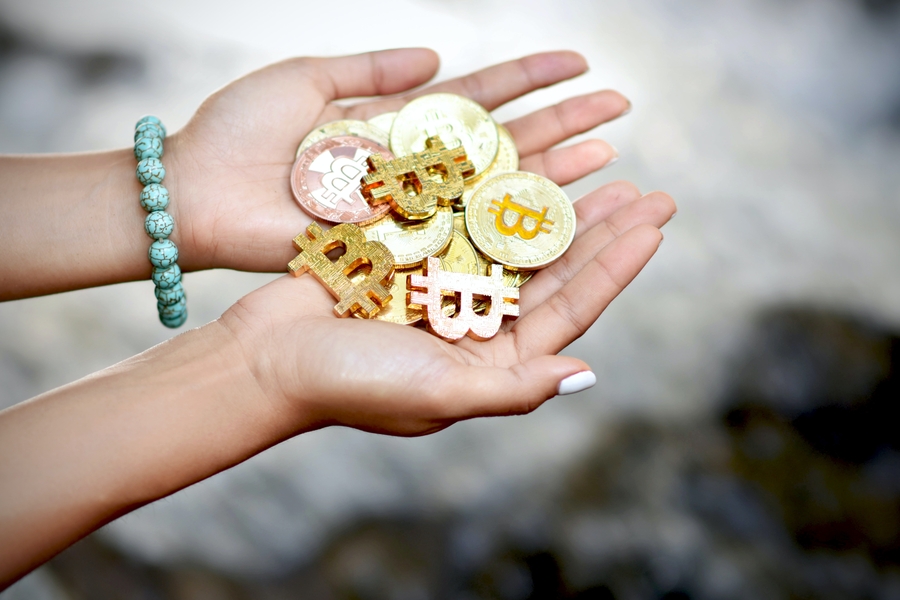
It's crypto's world and we're just living in it.
It’s no surprise that cryptocurrency has a volatile nature, but once understood the risks can turn into lifetime rewards.
Contributing Editor Reefaya elaborates on what changes we can expect to see in the MENA market.
The crypto-currencies market in recent years has dropped due to the outbreak of the COVID-19 pandemic. Following a year and a half into the pandemic, the market has seen a mild improvement compared to its situation in 2020. However, this gradual upward trend still needs major progress to thrive in the market following several factors that might drive demand once again. The most recent price of Bitcoin dipped below $30.000 in July 2021 to $29.514 due to the latest consequences implicated by the new COVID-19 variant. Since cryptocurrencies are not managed by a central entity but operate automatically, investors are fearing that a crisis will lead central banks or political actors to interfere in the market.
The chaos triggered by the pandemic might lead to at least two risky activities that may cause extensive losses. First, investors may manipulate the price of the cryptocurrencies (pump-and-dump schemes) by artificially increasing the demand to lure unsophisticated investors and then drop their holdings once the price is adequately stable. Second, pre-pandemic, cryptocurrencies were suspected of aiding criminal activities. Judging by this reality, potential investors may fear being wrongly associated with criminal activities or money laundering. So, what does a cryptocurrency drop for the Middle East mean?
Countries in the Middle East are beginning to see the benefit and necessity of implementing Bitcoin and other cryptocurrencies as these digital assets gain more momentum. There has been assuring progress in the Middle East whereby government bodies employ this new technology and introduce frameworks that allow entrepreneurs and companies to thrive. Fortunately, as the crypto market is heading back to normal, a prominent cryptocurrency trader BitOasis announced strong financial results for the first half of 2021, counting trade volumes that exceed $3billion and a 200% growth in its user base. However, the pandemic still has a major influence on the market, making it volatile and challenging to control; not leaving enough time for corporations to understand its technological mechanisms. Additionally, globally, investors are scrambling for solutions to avoid a possible ‘crypto crash.’ Experts recommend investors keep their cryptocurrency investments to under 5% of their portfolio because market swings are unavoidable. For the UAE, to stay afloat of the uncertain market drop, Dubai is seeking to tighten regulation and should be central to sustaining unprecedented growth of the cryptocurrency industry as the technology gains grip in the region. UAE is looking to license exchanges for crypto operators to have the infrastructure available for retail customers in the region.

What could this scenario mean for new investors in the Middle East who have not invested yet? Is it a drawback or a risk-worthy opportunity? From an investor’s perspective, cryptocurrency may be different from traditional investments but if new investors can read and understand the complexity behind crypto, then future returns will be worth it. For new investors looking to buy, understand that fluctuations are a part of the course and be prepared for any type of uncertainty. In a post-COVID era, prices may be low but potential investors must be prepared for an even lower dip. In simple form, potential investors across the globe should only put in what they are comfortable with losing—once they have other primary financial goals settled first. For the younger generation in the Middle East, there’s a rapid growth in interest and awareness of the virtual currency world. Millennials and Generation Z who have acquired deep knowledge of the technology, have gained millions by understanding the volatile space. It is advised that newcomers in this market should do thorough research and must ensure financial stability before investing, putting a substantial amount is always the first best step to take in this new line of investment.
Lastly, are banks cryptocurrency-friendly in the UAE or anywhere in the Middle East? The UAE holds two types of crypto worlds: one that is not formal that operates independently without any regulation and the other with well-regulated entities offering their clients transparency and operating under regulation. Jurisdictions such as ADGM and DIFC have proposed cryptocurrency regulations, and as of 2020 central bank of the UAE set out a virtual asset scheme in partnerships with international organizations to make the virtual currency mainstream. But this raises another pressing question, will cryptocurrency supply opportunities for startups? Once the crypto transaction goes mainstream, young entrepreneurs will not need to go to banks to open an account. In the present context, less than 1.3% of the population of the world hold cryptocurrency, encouraging entrepreneurs to start leveraging the technology.
Like any other investment, investing in crypto assets comes with risks and vast potential rewards. Cryptocurrency is undeniably a breakthrough to the digital transaction sector and is composed enough to join the ranks of conventional payment methods. The level of volatility of the cryptocurrency market still brings up the debate for setting a regulatory entity to ensure safety and security and avoid any type of criminal activity and fraud. Cryptocurrency can be a reliable source of income if investors are aware of the best practical methods of preventing loss, fraud and unwanted risks.
About The Editor
Born in Bangladesh and raised in the Middle East, UAE and Bahrain, Reefaya is a postgraduate from The London School of Economics in U.K. and an undergraduate from Sussex University. Reefaya has an immense love for sustainable fashion, social development and art.


